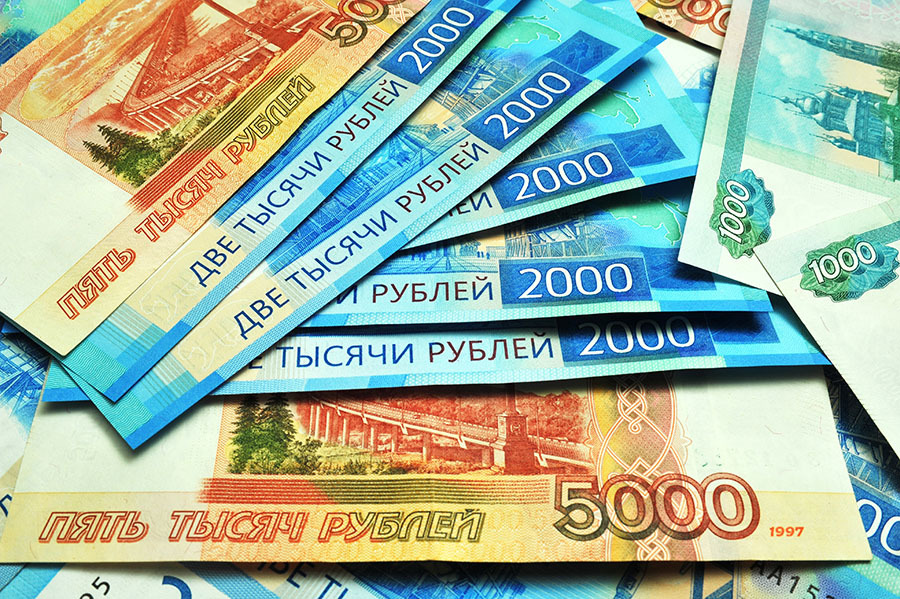On Tuesday, November 23, the State Duma adopted in the second reading the draft law "On the federal budget for 2022 and for the planning period of 2023 and 2024."
This was reported on the website of the lower house of parliament.
According to the document, the revenues of the state treasury will increase throughout the three-year period.
In 2022, they may amount to 25.02 trillion rubles, in 2023 - 25.54 trillion, and in 2024 - 25.83 trillion.
Budgetary expenditures, in turn, will also grow steadily.
It is assumed that in 2022 the corresponding spending will amount to 23.69 trillion rubles, in 2023 - 25.24 trillion, and in 2024 - 26.35 trillion rubles.
Of these funds, it is planned to allocate a total of about 8.6 trillion rubles for the implementation of national projects in three years.
“The budget for 2022, in contrast to the budget of last year, is formed with a surplus.
We have the opportunity to direct additional funds to address priority tasks - to social support for citizens, especially families with children, ”said Chairman of the State Duma Viacheslav Volodin.
According to him, the bill took into account proposals for the development of health care, construction and overhaul of schools.
Also, the deputies supported initiatives to resettle emergency housing and provide apartments for orphans.
In addition, amendments were approved that provide for the allocation of additional money for the repair of roads in the country, subsidies for air travel for residents of the Far East, the development of rural areas and an increase in the availability of medical care in rural areas.
The authorities also plan to use new funds to provide housing for disabled people, overhaul student dormitories, build sports grounds, promote youth employment and eliminate the digital divide.
“But the main thing is the indexation of social expenditures above the inflation rate,” Volodin emphasized.
We will remind, earlier the President of Russia Vladimir Putin proposed to increase the living wage and the minimum wage (minimum wage) in 2022 by 8.6% - up to 12 654 and 13 890 rubles, respectively.
The head of state submitted the necessary amendments for this to the lower house of parliament on November 19.
It is expected that the initiative of the Russian leader will lead to an increase in social payments and wages in the public sector.
In total, according to the authorities, the amendments will affect 19 million Russians.
It is planned to allocate 30 billion rubles from the budget for these purposes.
“These changes will especially affect the poor, for whom various payments and benefits are extremely important.
At the same time, public sector wages will grow.
Thus, increasing the minimum wage is the basis for ensuring the growth of the well-being of the country's citizens, ”said Artyom Deev, head of the analytical department at AMarkets, in an interview with RT.
RIA News
© Alexey Sukhorukov
According to experts, the acceleration of inflation is currently having a negative impact on the incomes of Russians.
Thus, according to the latest estimates of Rosstat, the annual rate of price growth in the country is now twice the target level of the Central Bank and is 8.1%.
In the current environment, pressure is increasing on low-income citizens, especially on families with children.
Georgy Ostapkovich, director of the Center for Market Research at the Institute for Statistical Studies and Economics of Knowledge, NRU HSE, shared this opinion in an interview with RT.
“Raising the minimum wage and the cost of living will overlap inflation.
At least in nominal terms, this premium will help people remove the inflationary overhang.
This is an absolutely socially oriented initiative.
All payments tied to a living wage - social assistance to families with children, sick leave, pregnancy payments - will increase proportionally, ”explained Ostapkovich.
As the specialist emphasized, as a result of the approved initiatives, effective demand should increase.
This, in turn, can become an additional factor in economic growth.
“People will be able to buy goods and services more actively.
Accordingly, enterprises will have to increase production volumes.
This will benefit the economy, but the most important thing is that people will receive help, ”added Georgy Ostapkovich.
Pension supplement
On Tuesday, the State Duma also adopted in the second reading the draft law on the budget of the Russian Pension Fund (PFR) for 2022-2024.
According to the document, the revenues of the PFR budget in 2022 will exceed 10 trillion rubles, in 2023 they will amount to almost 10.6 trillion, and in 2024 - about 11.1 trillion rubles.
In turn, spending in 2022 will be at the level of 10.2 trillion rubles, in 2023 - 10.6 trillion, and in 2024 - 11.2 trillion rubles.
“The indexation of social pensions and pensions for state pensions will be from April 1 annually according to the forecast index of growth of the subsistence minimum of a pensioner for the previous year in 2022 - 7.7%, in 2023 - 2.5%, in 2024 - 9.9 %.
The indexation of insurance pensions will be 5.9% in 2022, 5.6% in 2023, and 5.5% in 2024, "the statement on the State Duma website says.
Earlier, Vladimir Putin recalled that the rate of indexation of pensions should be higher than actual inflation.
As the head of state emphasized, since 2019, the authorities "strictly adhered to this rule."
“Today, given the significant rise in inflation, it would be wrong to deviate from this principle.
Proposals on specific parameters for indexing pensions are now being worked out both in the government and in the administration, and the deputies are thinking about this.
We will return to them in the near future, let's see how the macroeconomic indicators will develop, ”Putin said.

